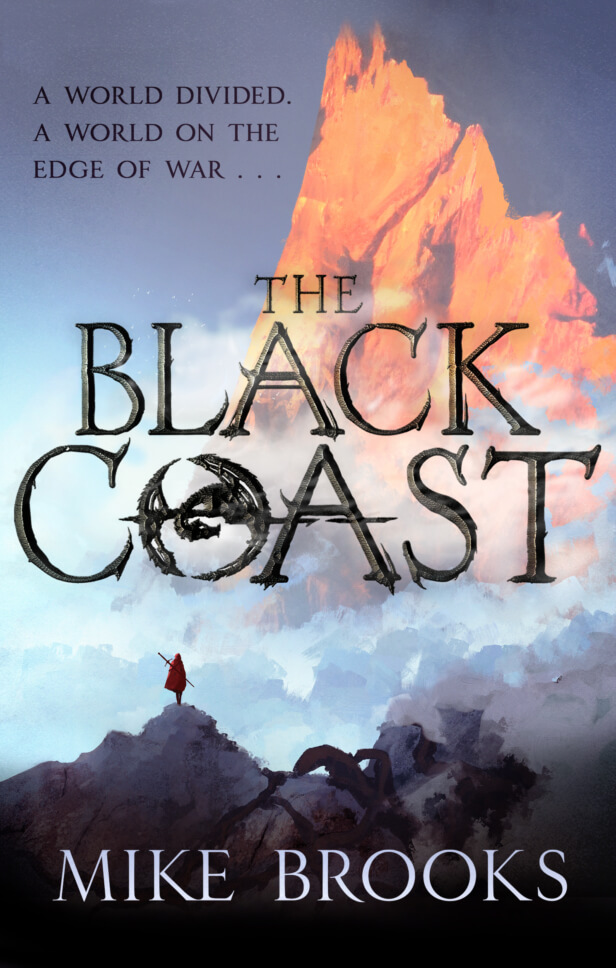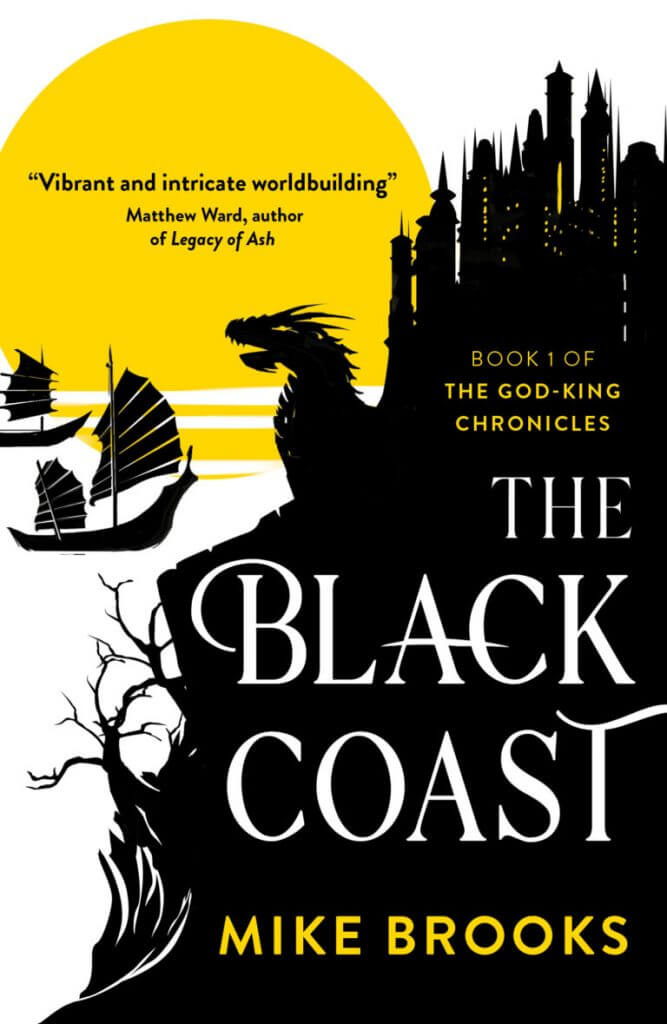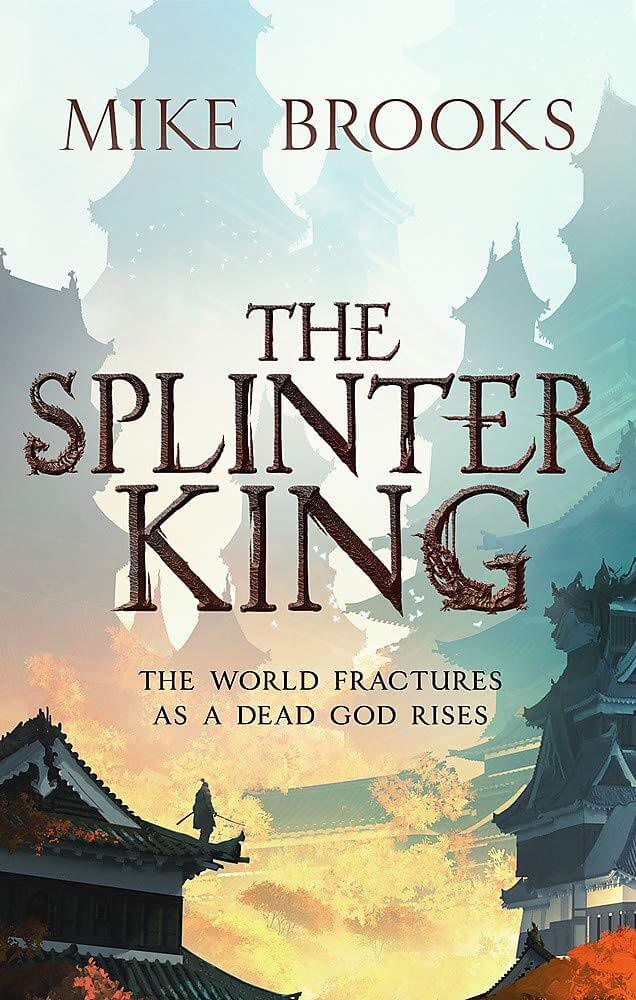It was out a month ago in the UK, but there were delays in the US release related to shipping (possibly Brexit-related, possibly Covid-related: possibly badgers? Who know), and I wanted to wait until it was out on both sides of The Pond before I blogged about it.
Well, this has been something of a ride.
It’s fair to say that I’ve been making up fantasy stories since I was a child, so it’s hard to say where The Black Coast and The God-King Chronicles actually started. Reading Tad Williams’ Memory, Sorrow and Thorn trilogy in the 90s was definitely a big kickstarter in terms of what I wanted my writing to do, but there have been any number of influences since then, and indeed before. Certainly, Alazar Blade his husband Marin, who are minor characters in The Black Coast, have a history of over twenty years in my head, albeit with certain alterations in nature and name. Another character linked to them whom you won’t meet until The Splinter King dates back to then as well, as do figures of legend like Tolkar the Last Sorcerer, and Nari the God-King. However, the main characters of The Black Coast – Saana Sattistutar, Daimon Blackcreek, Jeya, and to a certain extent Tila Narida – are all much more recent, only taking form when I started working on this a few years ago.
As for why I wrote The Black Coast, I’ve covered it elsewhere, but it was a combination of factors. The Keiko series, although moderately successful both commercially and critically (I got two starred reviews from Publishers Weekly, that’s nothing to sniff at), did not seem to have the legs for publishers to be that interested in continuing it; and then the Brexit vote happened. There might be some reasonable arguments for Brexit, although they seem harder and harder to find these days, but certainly the campaign for it felt dominated by xenophobia and intolerance: attitudes which I feel have only become more prominent in my country in the time since. The Black Coast became a way for me to deal with that, by writing about two cultures who have clashed in the past, and certainly have deep-seated differences, but which are capable of nonetheless learning to appreciate each other, and move beyond old hatreds to forge a new understanding and mutual benefit. As I wrote, I began to explore other things as well: how different cultures thought, and how I could explore that through language when I only had English to work with. This led to the Naridans having no first-person pronouns, since their sense of identity is inextricably linked to their place in society and their relationship to the people to whom they are speaking; and the Alaban culture, where there are five genders and six forms of address (high masculine, low masculine, agender, low feminine, high feminine, and the gender neutral formal for when you don’t know someone else’s gender, or do not wish to disclose your own), which are indicated in text form by diacritics over vowels (“yòu” or “mê”, for example).
These things seem to have struck a chord with readers, judging by the reviews I’ve seen so far: certainly, people like the war dragons (WAR DRAGONS!, as it is apparently necessary to write it) and the battle scenes, but most of the reviews linger over the largely positive message (not without a few bumps on the way, it has to be said), the challenging of prejudice, and the explorations of cultural difference through how people think and speak. For that, I am truly glad. The Black Coast is not quite your standard fantasy epic, if there is such a thing, although I’m not going to claim that it’s truly revolutionary or groundbreaking: it’s a bit different, but hopefully in ways that complement what’s come before, rather than making people go “OH GOD WHAT IS THIS I HATE IT”.
So, there it is. I now have an epic fantasy novel published in the UK and the US, and I am becoming increasingly cool in the eyes of my imaginary seventeen year-old self (I also have much better hair than him, which is something not every thirty-nine year-old can claim). Until a few years ago I’d never even considered this to be an even vaguely realistic “life goal” (I put that in quotation marks because I don’t have life goals: I stumble along doing what seems like a good idea at the time, then look back and go “Ooh, that worked out well!”), so it’s hard to work out what to aim for next. Maybe I should try to get a TV series? I’d say “just kidding”, but at this point I sort of figure that I might as well, since everything’s gone okay so far…
But anyway. Most importantly, what comes next is The Splinter King, the second novel in The God-King Chronicles, which is due out later this year (current plan is, I believe, July for the UK and September for the US, but all things are subject to change in publishing), and then the third volume (I’m not naming it here just in case something changes between now and publication, and maybe I’ve grown too used to non-disclosure agreements in my freelance work), to which I am even now putting the final touches before it goes to my editors by the end of the month, and which is due out next year. But here’s the UK artwork for the cover of The Splinter King, by the amazingly talented Anato Finnstark, so you can get a taster of what’s to come:
A bit tasty, isn’t it? Hopefully the contents will match up…
Anyway, that’s all from me for now (although watch out, as I probably need to blog about Black Library stuff soon too). Thanks for reading, everyone.




Just read black coast,as good a first book in a series in many a year